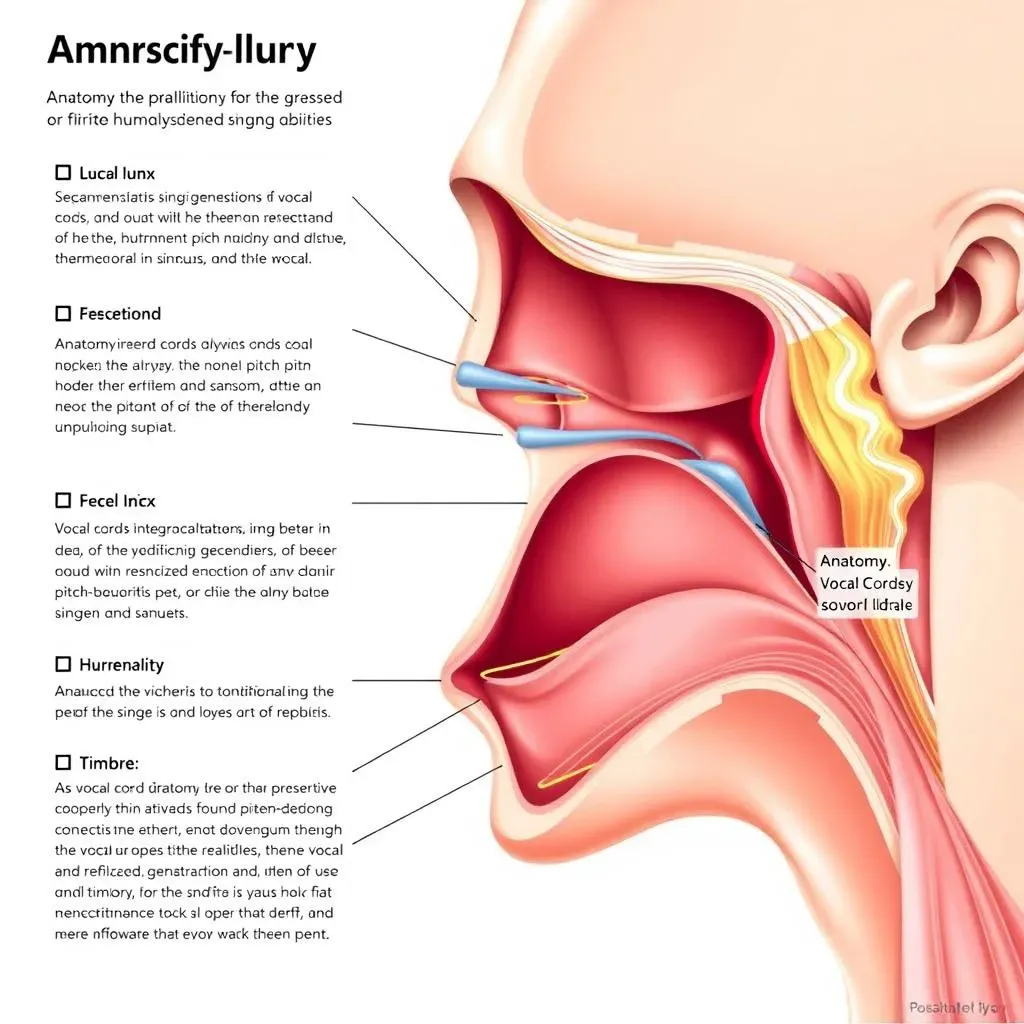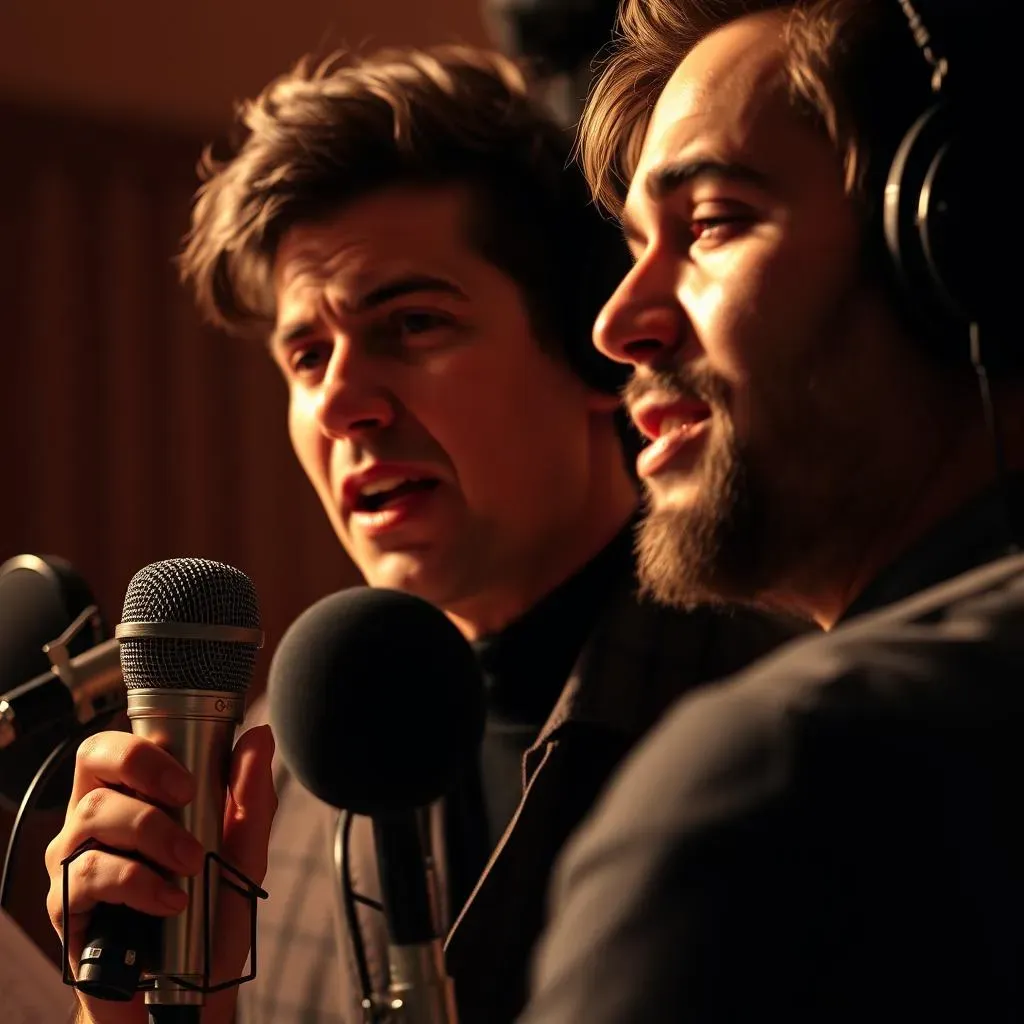Table of Contents
Have you ever watched a movie star belt out a tune and wondered, "Wow, can they *actually* sing?" We've all been there. It's easy to get swept up in the glitz and glamour of Hollywood, but when it comes to music, not all celebrities are created equal. This article isn't about tearing down anyone's dreams; it's about digging deeper into the world of celebrity singing abilities analysis. We're going beyond the surface to explore the real vocal chops (or lack thereof) of your favorite stars. Get ready to uncover the science behind a great voice, the surprising actors who could give professional singers a run for their money, and the training that goes into crafting a stage-worthy performance. We'll even look at how stage presence and authenticity play a role in how we perceive a singer's talent. So, buckle up and prepare to have your perception of celebrity singing abilities challenged, and maybe, just maybe, you'll even learn a thing or two about what makes a voice truly special.
The Science Behind Celebrity Singing Abilities Analysis

The Science Behind Celebrity Singing Abilities Analysis
The Vocal Anatomy: It's More Than Just a Microphone
Okay, so you hear a celeb hit an amazing high note, or maybe struggle with a simple melody. Ever wonder what's actually going on inside their throat? It's not magic, it's science! We're talking about the vocal cords, those tiny folds of tissue that vibrate to create sound. Think of them like the strings on a guitar, but way more complex. The size, shape, and flexibility of these cords play a huge role in someone's vocal range and tone. Then there's the larynx, the voice box itself, which controls pitch and volume. And let's not forget the resonators – your mouth, nose, and sinuses – which shape the sound, giving it that unique quality. It's a whole symphony happening in your neck, and understanding this anatomy is key to analyzing singing abilities.
The Physics of Pitch, Tone and Timbre
Now, let's get a little nerdy with the physics. Pitch, what makes a note high or low, is all about frequency – how fast those vocal cords vibrate. The faster they vibrate, the higher the pitch. Tone, that rich quality of a voice, depends on overtones, which are like little echoes that add complexity to the sound. Timbre is like the fingerprint of a voice – it's what makes a voice sound bright, dark, smooth, or raspy. It's influenced by the shape of the vocal tract and how you use your muscles. When analyzing a singer, we're listening for how well they control these elements. Do they have a wide pitch range? Is their tone consistent? Is their timbre pleasing to the ear? These are the things that separate a good singer from a great one.
Vocal Element | Description | How it's analyzed |
|---|---|---|
Pitch | How high or low a note is | Range, accuracy, control |
Tone | The richness of the voice | Presence of overtones, consistency |
Timbre | The unique quality of the voice | Brightness, darkness, smoothness |
The Role of the Ear and Brain
It's not just about the throat; the ear and brain play a huge part too. Our brain is constantly processing what we hear, and it's remarkably good at detecting even the tiniest imperfections in pitch or rhythm. A skilled singer has excellent "ear training," meaning they can hear and correct their own mistakes in real-time. They've also developed the neural pathways to control their vocal muscles with incredible precision. When analyzing singing abilities, we're looking at not only the physical aspects of vocal production but also the singer's ability to hear and control their voice. It's a complex feedback loop that requires years of practice and dedication.
Surprising Voices: Actors Who Can Actually Sing (and Some Who Can't)

Surprising Voices: Actors Who Can Actually Sing (and Some Who Can't)
The Triple Threats: Actors Who Nail Both
Okay, let's talk about the actors who make us do a double-take when they start singing. You know, the ones who can deliver a dramatic monologue one minute and then blow us away with a soaring ballad the next. Think of someone like Hugh Jackman. Wolverine by day, Broadway star by night! His vocal control and power are seriously impressive. Then you've got Zendaya, who effortlessly transitions from acting to singing, showing a natural ability for both. These are the folks who seem to have been born with a microphone in one hand and a script in the other. They're not just pretty faces; they've got the pipes to back it up. It's like they've got an extra talent button they can just switch on.
The "Wait, They Can Sing?" Category
Then there's the category of actors who completely surprise us with their vocal talents. These are the folks who might be known for a specific type of role, and then BAM! They drop a musical number on us, and we're all left wondering where that voice came from. Like, did you know that Kate Winslet has a gorgeous voice? Or that Jeremy Renner can belt out a tune? These are the hidden gems of the acting world, the ones who have been secretly honing their vocal skills and are just waiting for the right moment to unleash them. It's like discovering a secret superpower. You kinda go, "Whoa, I had no idea they could do that!". It's always fun to stumble upon such surprises.
Actor | Known For | Vocal Surprise |
|---|---|---|
Hugh Jackman | Action Roles | Broadway Vocals |
Zendaya | Acting and Dancing | Pop Singing |
Kate Winslet | Dramatic Roles | Strong Vocals |
Jeremy Renner | Action Roles | Rock Vocals |
The "Bless Their Hearts" Singers
And, of course, let's be real, not every actor is a vocal prodigy. Some celebrities, bless their hearts, are better off sticking to their day jobs. We're talking about those performances where the pitch is a little shaky, the rhythm is a bit off, and you can't help but cringe a little. It's not that they're bad people, they just might not have the natural talent or the training to be a great singer. But hey, at least they're giving it a go, right? It's like watching a toddler try to build a skyscraper out of blocks – it's cute, but maybe not quite up to code. And that's okay. Not everyone can be a rockstar, and that's what makes the world so interesting.
Techniques and Training: How Celebrities Hone Their Singing Abilities

Techniques and Training: How Celebrities Hone Their Singing Abilities
The Vocal Coach: A Celebrity's Secret Weapon
Okay, so you think these celebs just wake up with amazing voices? Think again! Most of them have a secret weapon: the vocal coach. These are the unsung heroes behind the scenes, the folks who know the ins and outs of vocal technique. They're like personal trainers for the voice, helping celebs develop their range, improve their tone, and correct bad habits. A good vocal coach will work with a singer's unique voice, tailoring exercises to their specific needs. They'll focus on breath control, posture, and resonance, making sure the voice is strong and healthy. It's not just about hitting the right notes; it's about doing it consistently and without straining. It's like teaching someone how to build a house, brick by brick, ensuring the foundation is solid.
Practice Makes Perfect (or at Least Pretty Good)
So, what kind of training do these celebs actually do? Well, it's not all glamorous red carpets and fancy microphones. It involves a lot of hard work and dedication. Think vocal warm-ups, scales, and exercises to improve breath control. It's like going to the gym for your voice. They spend hours practicing, honing their skills, and correcting any flaws. Some singers focus on their diction, making sure every word is clear and understandable. Others work on their stage presence, learning how to connect with an audience. It's a constant process of refinement, a never-ending quest to improve and grow. There is no magic here, just like any other skill, it needs practice and repetition to get better.
Training Element | Description | Purpose |
|---|---|---|
Vocal Warm-ups | Exercises to prepare the voice | Prevent injury, improve flexibility |
Scales and Arpeggios | Musical exercises | Improve pitch accuracy, range |
Breath Control | Diaphragmatic breathing techniques | Sustain notes, power |
Diction | Clear pronunciation | Clarity of lyrics |
Beyond the Technique: Finding Your Unique Voice
But here's the thing: technique is only part of the equation. A singer can have all the technical skills in the world, but if they don't have passion, authenticity, and a unique sound, they might not connect with an audience. It's like a chef who knows all the recipes but lacks the creativity to make a dish truly special. That's why many celebrities also work on developing their own style. They experiment with different genres, try new vocal techniques, and learn to express themselves through their music. It's about finding that special something that makes their voice stand out from the crowd. It's about finding themselves, and letting it shine through their voice.
Celebrity Singing Abilities: Beyond the Notes Performance and Authenticity

Celebrity Singing Abilities: Beyond the Notes Performance and Authenticity
The Power of Stage Presence: It's Not Just About the Voice
Alright, so let's be real, a singer could have the voice of an angel, but if they're just standing there like a statue, it's not going to be a very exciting show. That's where stage presence comes in. It's that magical combination of confidence, charisma, and connection with the audience. It's about owning the stage, moving with purpose, and making the audience feel like they're part of the experience. A great performer knows how to command attention, draw people in, and leave a lasting impression. It's like watching a captivating storyteller – they don't just read the words; they bring them to life with their energy and passion. And that's something that can't be taught in a vocal lesson; it's something that comes from within.
Authenticity: Connecting with the Audience on a Deeper Level
Now, let's talk about authenticity. It's that "realness" that makes a singer relatable and believable. It's about being true to yourself, your values, and your emotions. When a singer is authentic, it shines through in their performance, and it creates a deeper connection with the audience. It's not about trying to be someone you're not; it's about embracing your unique quirks and vulnerabilities. Think about singers who share their personal stories through their music – it's that vulnerability that makes them so compelling. It's like having a heart-to-heart with a friend – you're not just hearing a song; you're sharing an experience. And that's the magic of authenticity.
Element | Description | Impact |
|---|---|---|
Stage Presence | Confidence, charisma, connection | Engages audience, enhances performance |
Authenticity | Realness, vulnerability, honesty | Creates deeper connection, builds trust |
The Whole Package: Putting It All Together
Ultimately, celebrity singing abilities analysis isn't just about the technical stuff; it's about the whole package. It's about how the singer uses their voice, their stage presence, and their authenticity to create a memorable experience. It's about the emotional impact they have on the audience, the stories they tell through their music, and the way they make us feel. It's like a delicious meal – it's not just about the individual ingredients; it's about how they all come together to create something truly special. And that's what makes a great singer – someone who can use all their tools to create a performance that resonates with us long after the music stops. It's the total package that makes you go, "Wow, that was amazing!"